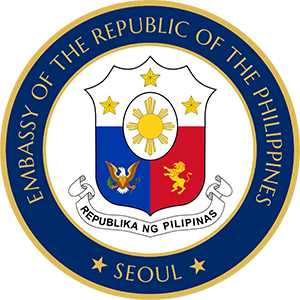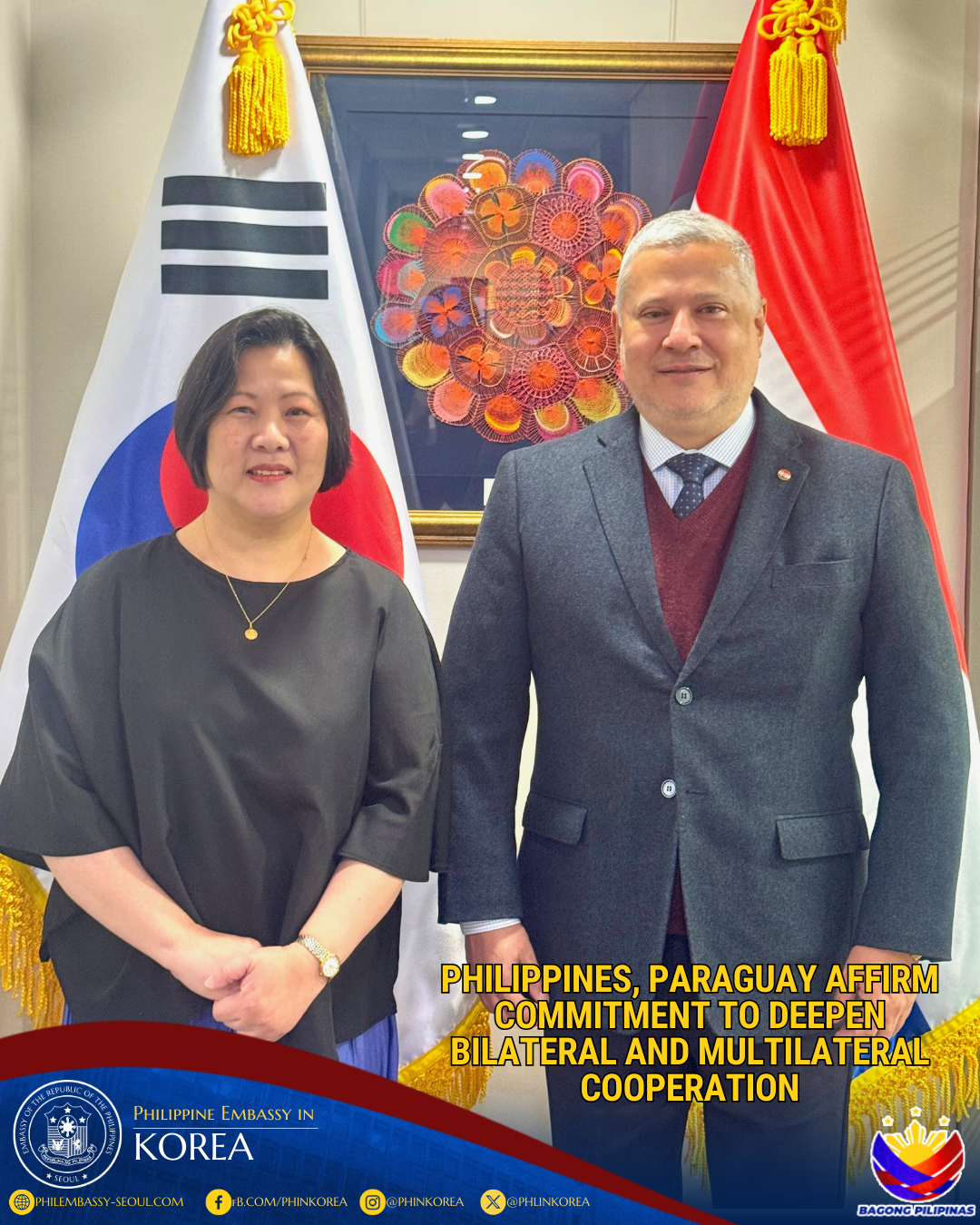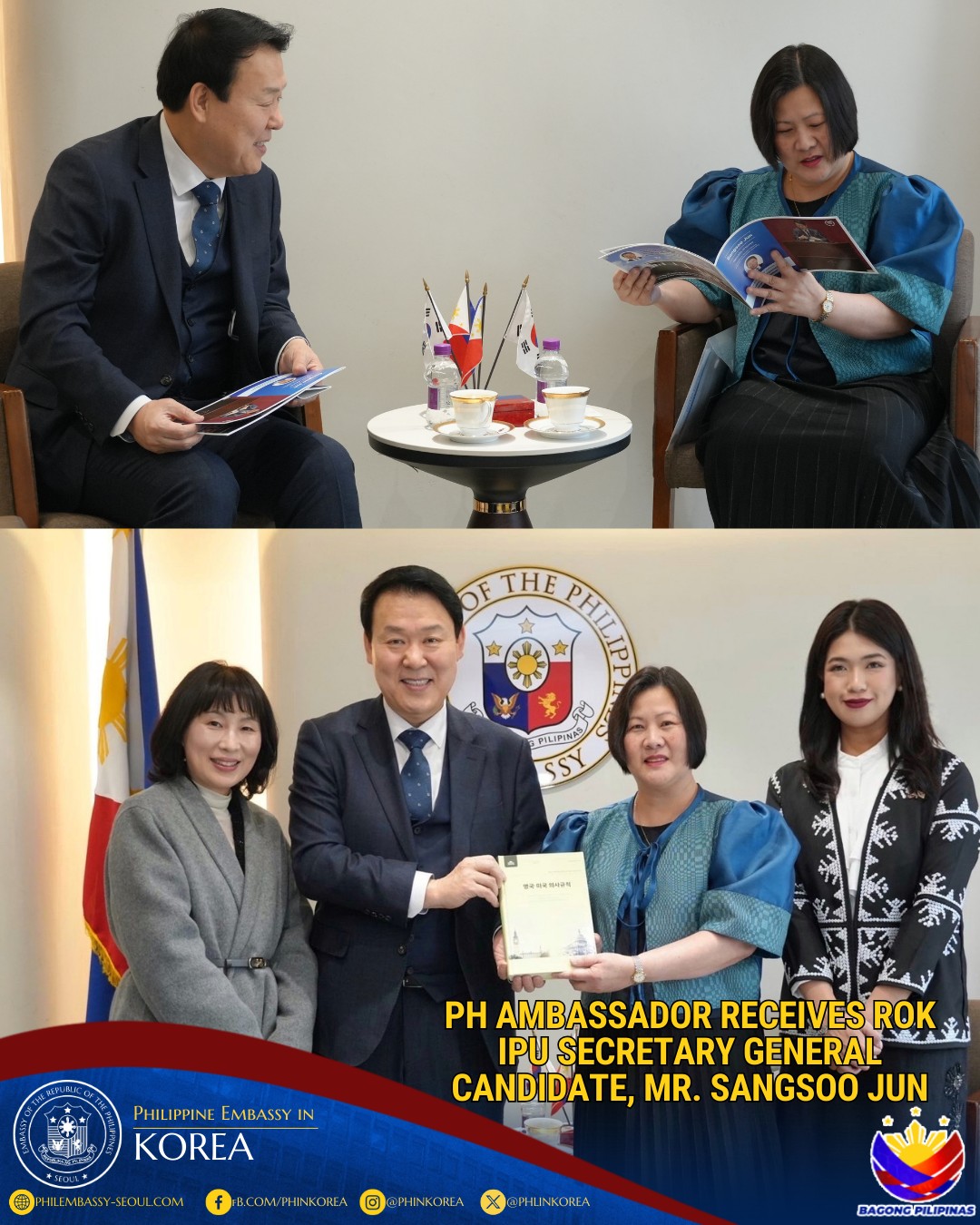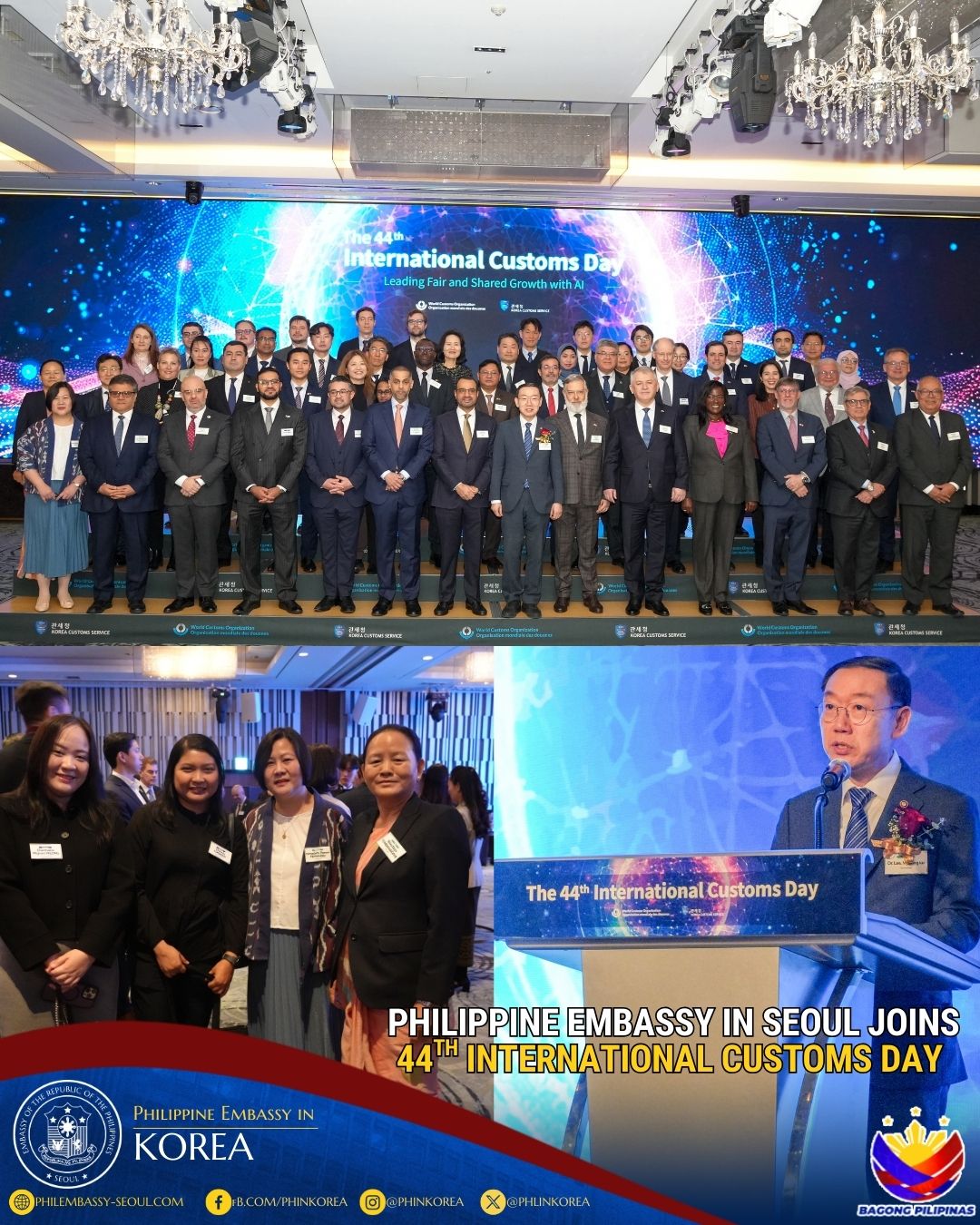Korea is Number One in the Philippines in Tourism, Investment, Education, and Retirement
The Philippine Embassy is located at the Jin Song Bldg., 34-44, Itaewon1-dong, Yongsan-Ku, Seoul. I could hear noise, which I could not distinguish as Korean or Tagalog (the Philippine language), when I arrived at consulate at the first floor of the chancery. I noticed couples—Korean husbands and their Filipino wives. The office of Ambassador Luis was on the third floor. He initially talked about the P500 bill (the Philippine currency).
“In the P500 bill (approximately W10,000), which is used in the Philippines now, you will find a picture pertaining to the Korean War. The bill was issued in 1987 and symbolizes the blood alliance between our two countries. Several decades ago, Filipinos fought for South Korea against communist forces. Now, South Korea supports the Philippines in its fight against poverty,†he said.
The P500 bill contains a picture of Benigno Aquino (a former senator, husband of former president Corazon Aquino, who was assassinated at the airport during the Marcos Era). As a war correspondent, he covered the Korean War.
It is true that 112 out of 7 thousand Filipino soldiers died during the war. A monument was set up in their memory in Goyang City. To this day, 50 years since the Korean War, three Filipino military officers continue to work here under the UN.
Relations between South Korea and the Philippines continue although the circumstances are different. It is not unusual anymore to see Korean-Filipino couples in some provinces. What does Amb. Luis think of it?
He responded, “Intercultural marriages were a result of globalization.†He added, “Koreans go to the Philippines for tourism, business, education, investments, and others, especially as South Korea began its economic development after the war. Filipinos also come to Korea to work. I think international marriages are a natural phenomenon.†He also mentioned, “However, the Philippine government banned arranged marriages (through matchmaking programs) because it appeared that these are commercial transactions in nature, which tend to exploit the vulnerability of Filipino women.â€
The number of aged Korean people planning to spend the rest of their life in the Philippines is rapidly increasing. Amb. Luis explained that the Philippine Retirement Authority is in charge of retirement visas. One of the requirements is a minimum investment of $50 thousand. It was estimated that 17 thousand foreigners have retired in Baguio, which is a well-known mountain resort with just the right temperature. Among the retired foreigners, almost half of them, specifically 47%, are Koreans.
With $50 thousand, they can buy a condominium unit or invest elsewhere. The visa is called a ‘Retirement Visa’ but anyone over 35 years old can apply for it. There is no problem even if the retirees sublet their units. Annually, three million foreigners visit the Philippines. Twenty-two percent of them are Koreans, who make up the highest number compared to other foreign countries. About two years ago, the number of Korean visitors exceeded that of the US and Japan. Roundtrip Seoul-Manila flights provide 38 thousand seats a week, including direct flights to Cebu, Clark, Manila and other destinations.
One hundred thousand Korean students, including those staying for a short period to study English, enrolled in the Philippines (last year).
How is it like to learn English in the Philippines? Amb. Luis said, “It is common for Filipinos to learn English when they are still young because they would have been educated in both their own dialects and in English in elementary schools.†This is why it is easy for Korean students to communicate with Filipinos. On the accent, he said, “Filipino English does not have a hard, but a neutral, accent, which makes Filipinos capable of easily adapting to American and British accents. Corporations hire many Filipinos as call center employees.â€
According to statistics, only 243 Filipino students are in Korea compared to the big number of Korean students in the Philippines last January. However, there were 4,002 Filipinos who visited to Korea with short-term visa.
The Philippines became an independent country after 300 years of Spanish colonization on June 12, 1898, which is celebrated as the Independence Day. Amb. Cruz said, “Spain sold the Philippines to United States. The US however was a benign ruler.†During the American colonization, governance, education and infrastructure in the Philippines were developed by the US. The US also promised to give the country independence early on.
This may make the case of the Philippines different from those of other colonized countries. All US forces eventually pulled out after the expiry of the RP-US bases agreement, although the two sides currently have Joint Military Training exercise.
Hanjin helped the Korean economy in 2006 by investing in the Philippines. Its new investment in Mindanao will also make Korea the country’s top investor.
Amb. Luis is planning to invite those who fought in the Korean War to South Korea next year for the 60th anniversary of Korean-Philippine alliance. He said, “I’m looking sponsors for this event.â€
The Philippines was the 5th country to extend diplomatic recognition to South Korea on March 3, 1949. For the Philippines, Koreans are now number one in almost all the areas, including tourism, investments, education, retirement and others. According to the Ambassador, Filipinos also love everything about Koreans because of the Korean wave.
Mr. Luis Cruz studied Philosophy at the San Carlos Catholic School and became a diplomat. He arrived in Seoul in February after postings in England, China, and Malaysia.
Translated from Kyunghyang Daily 04.30.2008



 January 28, 2026
January 28, 2026
 January 26, 2026
January 26, 2026
 January 29, 2026
January 29, 2026
